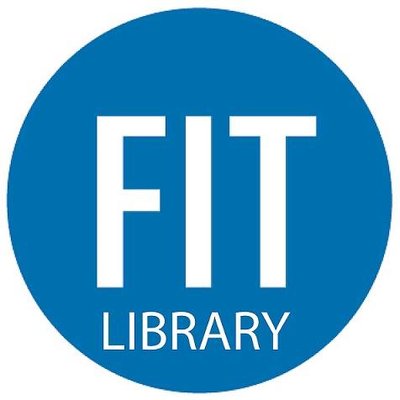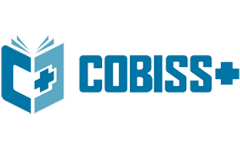Implementation of Culture-based Character Education Management through the Application of Blended Learning as a Source of Social Sciences Learning (IPS)
DOI:
https://doi.org/10.61841/ap3hmp34Keywords:
Blended Learning, Management of Character Education, Culture, Environment, OmboAbstract
This research is motivated by environmental damage, the phenomenon of derailment of moral values and ethics, and the strengthening of violence caused by humans. In this context, efforts are needed to cultivate the local ecological wisdom values of local culture as an effort to inherit culture towards students. The focus of this research is to promote the management of education based on the local culture of the Kaili ethnic community as a source of learning. Blended learning technology is present as a medium that can be used to help convey information in the form of text, sound, images, or a combination of all these media. This study aims to (1) describe the steps to implement the management of culture-based character education at Sigi 1 Middle School; (2) identify dominant character values in blended learning; and (3) describe local cultural values that are relevant to the management of character education. This study uses a one-shot case study pre-experimental design (non-design) method with the basis of thinking that this study is intended to describe the implementation procedures for culture-based character education management with the application of blended learning. Data collection is done through observation and interviews; data analysis uses descriptive statistical themes (Sugiyono, 2015). The results of the study show that (1) the steps for implementing the management of culture-based character education in SMP 1 Sigi consist of planning, organization, implementation, and supervision; 2) the dominant character values in blended learning are responsibility, independence, honesty, environmental care, social care, and hard work; 3) Kaili ethnic local culture that is relevant to the management of character education is an ombo, which is the local wisdom of environmental conservation.
Downloads
References
[1] Nicolescu R. The Influences of Globalization on Educational Environment and Adjustment of National Systems. Procedia - Soc Behav Sci [Internet]. 2015;180(November 2014):72-9.
[2] Dangara UY. Educational Resources: An Integral Component for Effective School Administration in Nigeria. Res Humanit Soc Sci [Internet]. 2016;6(13).
[3] Agung L. The Development of Local Wisdom-Based Social Science Learning Model with Bengawan Solo as the Learning Source. Am Int J Soc Sci. 2015;4(4):51–8.
[4] Sehe, Tolla A., Kamaruddin, Hamsa A. The Development of Indonesian Language Learning Materials Based on Local Wisdom of the First Grade Students in Sma Negeri 3 Palopo. J Lang Teach Res. 2016;7(5):913-22.
[5] Kim J. School accountability and standard-based education reform: The recall of social efficiency movement and scientific management. Int J Educ Dev. 2018;60(November 2017):80–7.
[6] Nuryana, Aprismayanti E. Pengaruh Penggunaan Modul terhadap Hasil Belajar Siswa pada Mata Pelajaran Matematika Kelas VII SMP Negeri 8 Kota Cirebon. J EduMa; Math Educ Learn Teach. 2013;2(1).
[7] Edwards DB. Shifting the perspective on community-based management of education: From systems theory to social capital and community empowerment. Int J Educ Dev [Internet]. 2019;64(May 2018):17–26.
[8] Linggar M, Famunkhit, Yulianto L, Maryono, Purnama BE. Interactive Aplication Development Object 3D Virtual Tour History Pacitan Distric Based Multimedia. Int J Advenced Comput Sci Apl. 2013;4(3).
[9] Labonne J, Chase RS. Do community-driven development projects enhance social capital? Evidence from the Philippines. J Dev Econ [Internet]. 2011;96(2):348–58.
[10] Kamaruddin R, Zainal NR, Aminuddin ZM. The Quality of Learning Environment and Academic Performance from a Student's Perception. Int J Bus Manag. 2009;4(4):171–5.
[11] Mehring M, Seeberg-Elverfeldt C, Koch S, Barkmann J, Schwarze S, Stoll-Kleemann S. Local institutions: Regulation and valuation of forest use—Evidence from Central Sulawesi, Indonesia. Land use policy [Internet]. 2011;28(4):736–47.
[12] Asiyanbi AP, Ogar E, Akintoye OA. Complexities and surprises in local resistance to neoliberal conservation: multiple environmentalities, technologies of the self, and the poststructural geography of local engagement with REDD+. Polit Geogr [Internet]. 2019;69(December 2018):128–38.
[13] Ahdiah I, Wirawan IB. Kaili Women's Empowerment in Indonesia. 2018;98(Icpsuas 2017):45–8.
[14] Kartika T. Verbal Communication Culture and Local Wisdom: The Value Civilization of Indonesian Nation. Ling Cult. 2016;10(2):89.
[15] Shackleton RT, Larson BMH, Novoa A, Richardson DM, Kull CA. The human and social dimensions of invasion science and management. J Environ Manage [Internet]. 2019;229(July):1–9.
[16] Mallaband B, Wood G, Buchanan K, Staddon S, Mogles NM, Gabe-Thomas E. The reality of cross-disciplinary energy research in the United Kingdom: A social science perspective. Energy Res Soc Sci [Internet]. 2017;25:9–18.
[17] Derbel F. Blended learning: Concept, emerging practices, and future prospects. Proc Eur Conf e-Learning, ECEL. 2017;2010-Octob(September):142-9.
[18] Atef H, Medhat M. Blended Learning Possibilities in Enhancing Education, Training, and Development in Developing Countries: A Case Study in Graphic Design Courses. TEM J. 2015;4(4):358–65.
[19] Szilagyi S, de la Calle B. Development and validation of an analytical method for the determination of semicarbazide in fresh eggs and in egg powder based on the use of liquid chromatography tandem mass spectrometry. Anal Chim Acta. 2006;572(1):113–20.
[20] Boyle T, Bradley C, Chalk P, Jones R, Pickard P. Using Blended Learning to Improve Student Success Rates in Learning to Program. J Educ Media. 2003;28(2–3):165–78.
[21] Li X, Chu SKW. Using design-based research methodology to develop a pedagogy for teaching and learning of Chinese writing with wiki among Chinese upper primary school students. Comput Educ [Internet]. 2018;126:359–75.
[22] Of I, Curriculum E, Development C, At C, Pedagogia TK. Implementasi Kurikulum Pendidikan Berbasis Budaya. 2013;515–28.
Downloads
Published
Issue
Section
License
Copyright (c) 2020 AUTHOR

This work is licensed under a Creative Commons Attribution 4.0 International License.
You are free to:
- Share — copy and redistribute the material in any medium or format for any purpose, even commercially.
- Adapt — remix, transform, and build upon the material for any purpose, even commercially.
- The licensor cannot revoke these freedoms as long as you follow the license terms.
Under the following terms:
- Attribution — You must give appropriate credit , provide a link to the license, and indicate if changes were made . You may do so in any reasonable manner, but not in any way that suggests the licensor endorses you or your use.
- No additional restrictions — You may not apply legal terms or technological measures that legally restrict others from doing anything the license permits.
Notices:
You do not have to comply with the license for elements of the material in the public domain or where your use is permitted by an applicable exception or limitation .
No warranties are given. The license may not give you all of the permissions necessary for your intended use. For example, other rights such as publicity, privacy, or moral rights may limit how you use the material.
















